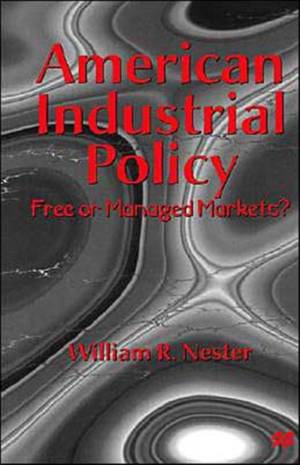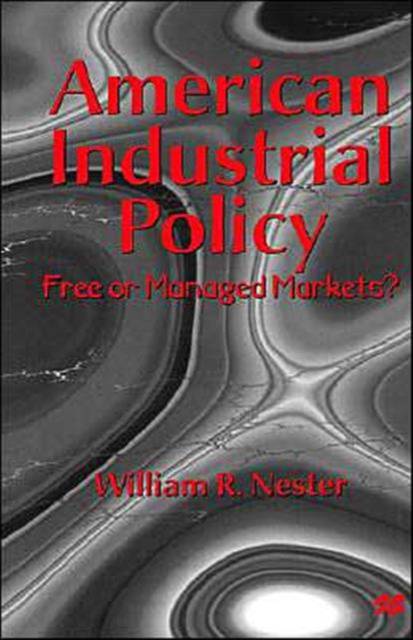
Door een staking bij bpost kan je online bestelling op dit moment iets langer onderweg zijn dan voorzien. Dringend iets nodig? Onze winkels ontvangen jou met open armen!
- Afhalen na 1 uur in een winkel met voorraad
- Gratis thuislevering in België vanaf € 30
- Ruim aanbod met 7 miljoen producten
Door een staking bij bpost kan je online bestelling op dit moment iets langer onderweg zijn dan voorzien. Dringend iets nodig? Onze winkels ontvangen jou met open armen!
- Afhalen na 1 uur in een winkel met voorraad
- Gratis thuislevering in België vanaf € 30
- Ruim aanbod met 7 miljoen producten
Zoeken
€ 259,45
+ 518 punten
Omschrijving
What is the government's proper role in the economy? Do free or managed markets best promote economic development? Who can best pick industrial winners and losers, the government or private sector? This book attempts to answer those and related questions by exploring the evolution and results of federal policies towards half a dozen economic sectors. Those policies are largely determined by the representatives of the targeted industry, bureaucrats from agencies and departments that administer that industry, and politicians with firms from that industry in their districts. These 'iron triangles' capture a 'virtuous' political economic cycle in which they use their united power to grant themselves favourable policies which in turn enhances their power. As will be seen, the results of such a politicized industrial policy process varies considerably from one industry to the next.
Specificaties
Betrokkenen
- Auteur(s):
- Uitgeverij:
Inhoud
- Aantal bladzijden:
- 288
- Taal:
- Engels
Eigenschappen
- Productcode (EAN):
- 9780312165925
- Verschijningsdatum:
- 12/07/1997
- Uitvoering:
- Hardcover
- Formaat:
- Genaaid
- Afmetingen:
- 145 mm x 225 mm
- Gewicht:
- 494 g

Alleen bij Standaard Boekhandel
+ 518 punten op je klantenkaart van Standaard Boekhandel
Beoordelingen
We publiceren alleen reviews die voldoen aan de voorwaarden voor reviews. Bekijk onze voorwaarden voor reviews.











